Ministry of Health and Family Welfare
Dr Harsh Vardhan’s visit to Bhopal
Dr. Harsh Vardhan inaugurates New Green Campus of NIREH
“Suitable Intervention Strategies will enable the achievement of the sustainable development goals of UNDP”
“Exposure to Ambient Air Pollutants especially PM2.5 and NO2 contribute to the Spread and Virulence of SARS-CoV2 infection”
Posted On:
13 MAR 2021 5:32PM by PIB Delhi
Dr. Harsh Vardhan, Union Minister for Health and Family Welfare inaugurated the New Green Campus of ICMR’s National Institute for Research in Environment Health (NIREH), at Bhopal today. He was joined by Dr. Prabhuram Chaudhary, Minister for Public Health, Government of Madhya Pradesh.
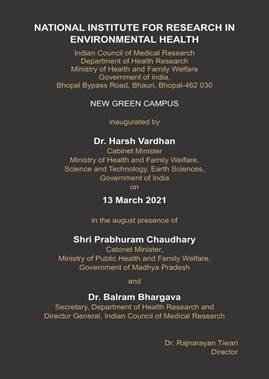
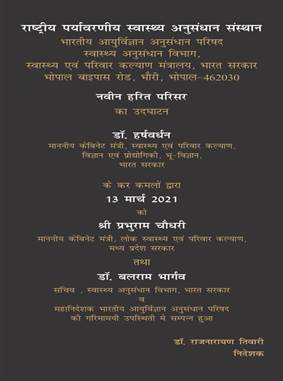
Terming the event a historical moment for the country, Dr. Harsh Vardhan spoke on the timely importance of the work carried out at NIREH: “In the current times, massive urbanization and development have taken a toll on our environment. Many parameters of the environment such as air, water, soil, biodiversity, etc. have been adversely affected resulting in deterioration of global human health. Thus, looking into the health effects being caused by adverse environmental conditions is a need of the hour. It is fortunate that India is not a major contributor to environmental degradation, but at the same time, we are committed to conserve and preserve the environment. The Global Solar Alliance under the leadership of the honourable Prime Minister, Prime Minister Ujjwala Yojana to provide cleaner fuel and Swachcha Bharat Abhiyaan are evidence of our commitment.”
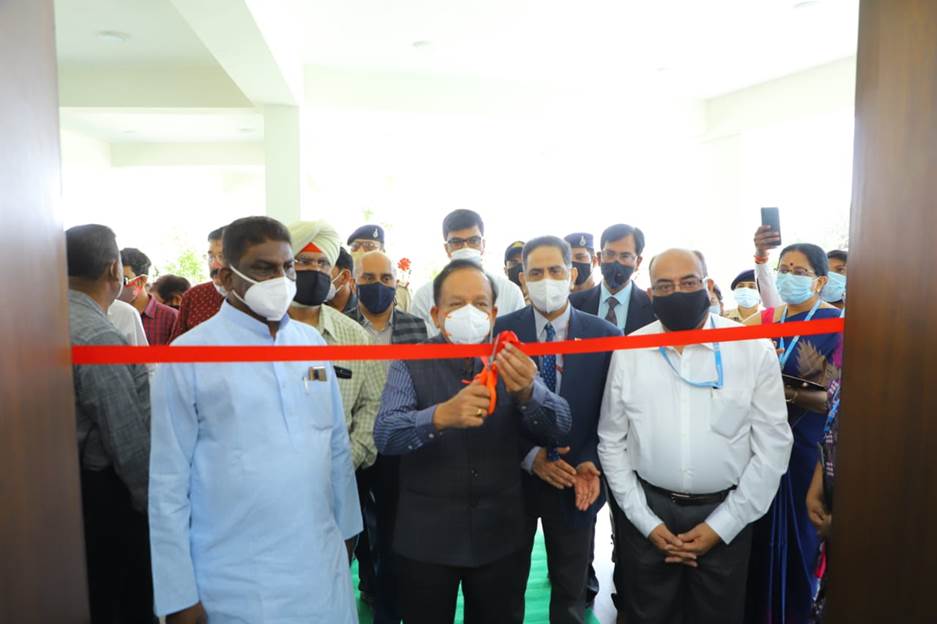
The Union Minister informed that NIREH, Bhopal was set up in Bhopal on October 11, 2010 as the 31st permanent research centre of the Indian Council of Medical Research (ICMR), mandated to focus on the issues of environmental health research. It is poised to become a Centre of Excellence in capacity building for research and health interventions to meet challenges in environmental disasters in the country.
Laying out the challenges before NIREH, Dr. Harsh Vardhan explained, “The World Health Organization (WHO) reported in 2018 that over 91% of the global population resides in areas where ambient air pollution levels exceed the normal limits prescribed by the WHO resulting in around 4.2 million annual deaths. The Lancet Commission on Pollution and Health further estimated that 1.8 million deaths worldwide are related to ‘water’ (mainly microbiological contamination) and 0.5 million deaths occur due to chemical pollution of water and soil by heavy metals and other man-made chemicals. Another major source of water pollution that is yet to be appropriately quantified is plastic debris. It has become an important environmental problem because of its ubiquitous prevalence, persistence, accumulation in aquatic food chains, and adverse effects on aquatic organisms and potentially to human health. The emission of huge quantities of greenhouse gases (GHG) into the atmosphere, which is the main cause of climate change. Thus, research, especially targeted at estimating the burden of pollution/climate change and consequent health effects, is essential to design and implement suitable intervention strategies that will enable the achievement of the sustainable development goals of UNDP.”
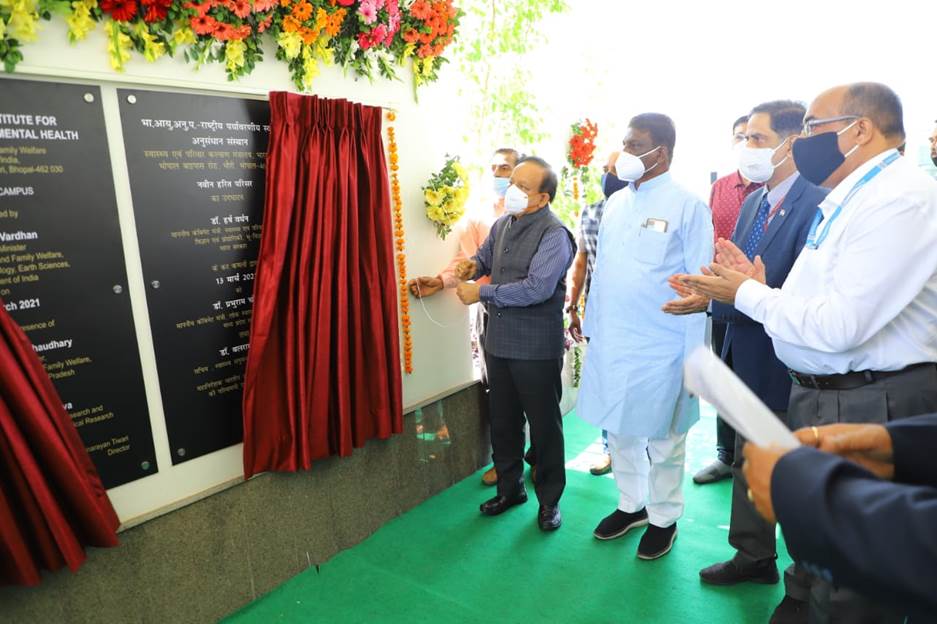
He also added that NIREH will play a great role in changing human behaviour through scientific communication aimed at educating and motivating the public to adopt pro-environmental behaviour.
Contextualising the current COVID-19 pandemic in the underexplored relationship between environment and health, Dr. Harsh Vardhan noted, “Emerging evidence suggests that exposure to ambient air pollutants especially PM2.5 and NO2 contribute to the spread and virulence of SARS-CoV2 infection. Furthermore, ambient air pollution is a known risk factor for multiple adverse health outcomes including chronic cardio-respiratory morbidities and the presence of said morbidities renders the affected population more vulnerable to COVID-19. To worsen matters, closed indoor spaces provide ideal environments for viral transmission due to a lack of ventilation preventing the dilution of viral particles and the absence of ultraviolet rays which can potentially inactivate the virus.”
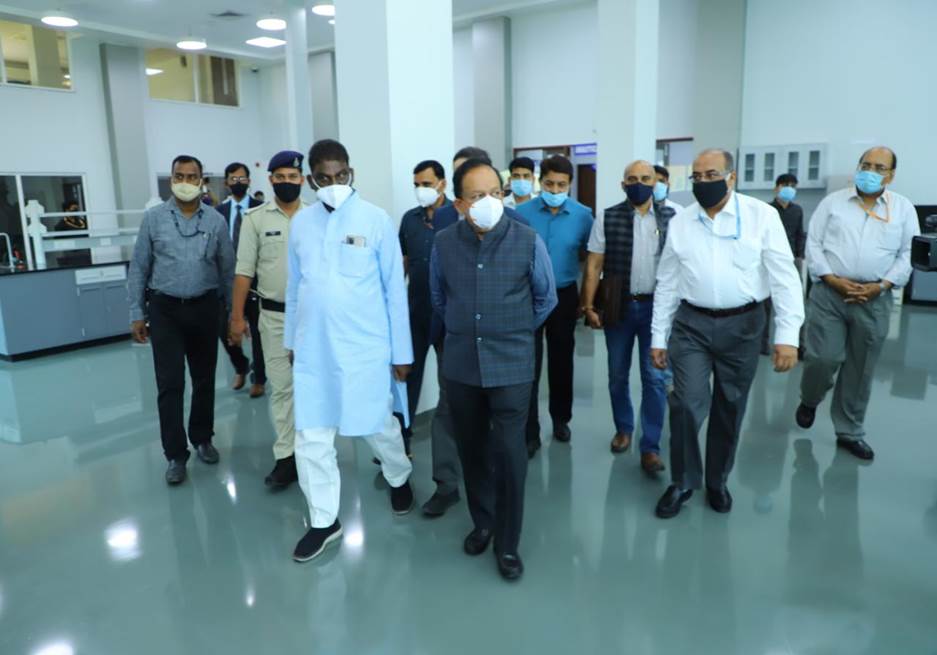
Dr. Harsh Vardhan ended his speech by pointing out that the concerns raised by him are only the tip of an iceberg and wished them the best in bringing to light facets of the complex relationship between environment and health.
Dr. Balram Bhargava, Secretary (Health Research) and DG-ICMR, Dr. RR Tiwari, Director, ICMR-NIREH and other senior officials of ICMR and ICMR-NIREH were also present.
****
MV/SJ
(Release ID: 1704592)
Visitor Counter : 1048